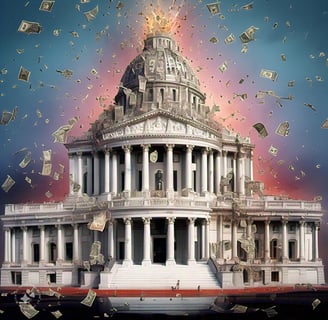The Financial Burden of Secret Service Protection for Campaigning Politicians - Trump campaigning and the EXORBANT COSTS for his protection while campaigning comes right out of the US Taxpayers Pockets. Why am I paying for this CRAP?


Introduction
The Secret Service is tasked with the critical responsibility of protecting past and present U.S. presidents, among other key figures. While this protection is essential for national security, questions arise when it comes to funding the security details of former presidents who are actively campaigning. Specifically, the financial implications of providing Secret Service protection for Donald Trump during his campaign have sparked debates among taxpayers.
The Need for Secret Service Protection
Providing security to former presidents is a necessity due to the high-profile nature of their roles and the potential threats they face. This protection is meant to ensure their safety and uphold national security. However, when a former president decides to campaign for office, the financial burden of their protection becomes a contentious issue. Unlike their post-presidency period, campaigning involves extensive travel, public appearances, and increased security risks, all of which escalate the cost of protection.
The Financial Burden on Taxpayers
The costs associated with Secret Service protection for a campaigning former president can be substantial. This includes expenses for personnel, travel, accommodation, and logistical support. For instance, Donald Trump's campaign-related activities necessitate a comprehensive security detail, which is funded by U.S. taxpayers. Many argue that this financial burden should not fall solely on taxpayers, especially when the individual is campaigning for personal political gain.
Possible Solutions
To address this issue, several potential solutions could be considered. One approach is to require the candidate, in this case, Donald Trump, to contribute to the costs of his protection. This could involve a reimbursement model where the candidate pays back a portion of the expenses incurred by the Secret Service. Alternatively, a separate fund could be established specifically for the protection of campaigning former presidents, which could be financed through private donations or campaign funds. This would alleviate the financial burden on taxpayers while still ensuring the safety of the candidate.
Conclusion
In conclusion, while the protection of former presidents is a necessity, the financial implications of providing Secret Service protection during their campaigns pose significant questions. It is essential to find a balanced approach that ensures their safety without overburdening taxpayers. Exploring alternative funding mechanisms or requiring candidates to contribute to their protection costs could be viable solutions. Ultimately, this issue warrants careful consideration to ensure fairness and fiscal responsibility.
